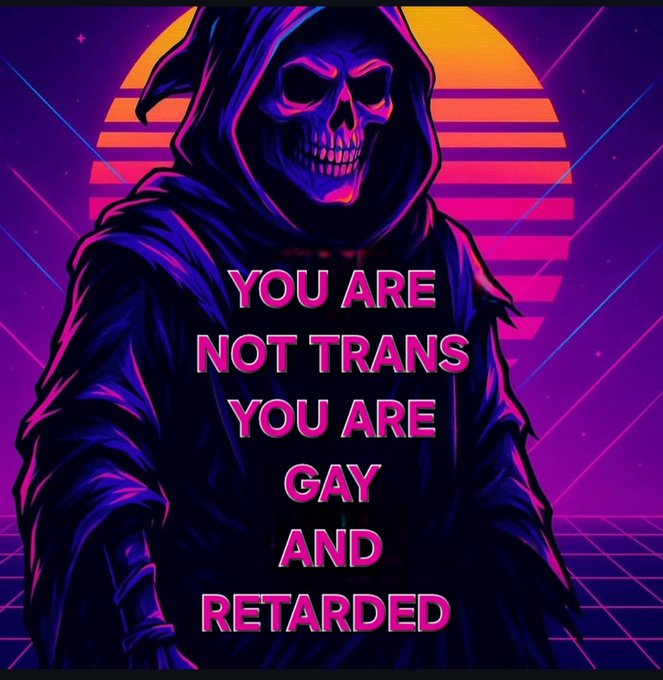You are using an out of date browser. It may not display this or other websites correctly.
You should upgrade or use an alternative browser.
You should upgrade or use an alternative browser.
Spitting truth
- Thread starter Diogenes
- Start date
Food Stamps do not literally exist anymore, so it is impossible to sell them. Clinton had them replaced with EBT cards. You could sell the EBT card, but then you would just cancel it, and get a new one. It just does not work like that anymore, except...
There are places where EBT cards are still sold, and that is in all white polygamous communities in the Southwest. The people there are forced to hand over their cards to the local church run grocery store, and then get food based on what the church decides.
Clinton tried to break that up, but for some reason Republicans strongly support it.
Food Stamps do not literally exist anymore, so it is impossible to sell them.
The term "food stamps" is still used colloquially, pedant, and "food stamps" persists in casual conversation.
It is not impossible to illegally trade SNAP (Supplemental Nutrition Assistance Program) or EBT (Electronic Benefits Transfer) benefits for cash, drugs, or other ineligible items. This practice, known as "trafficking," is a well-documented federal crime under 7 U.S.C. § 2024, and it occurs regularly despite aggressive enforcement efforts by the USDA's Food and Nutrition Service (FNS).
While the EBT system has reduced fraud compared to the old paper "food stamp" era, trafficking persists through methods like selling benefits at a discount (e.g., $100 in SNAP for $50 cash), indirect exchanges (e.g., buying groceries with SNAP and reselling them), or using benefits to purchase non-food items that are then traded.
Recipients sell their EBT card balance or PIN to others for cash, often at 50 cents on the dollar, to fund drugs, alcohol, tobacco, or other non-eligible purchases.
Recipients buy eligible items (like soda or energy drinks) with SNAP and sell them back to stores or individuals for cash. Stores may also buy bulk items purchased with SNAP to resell, creating a black-market loop.
The USDA estimates annual trafficking losses at hundreds of millions of dollars, with FNS disqualifying over 1,000 retailers yearly for violations. A 2023 USDA report highlighted patterns like unusually high EBT transaction volumes relative to store inventory as red flags.
Real-world examples abound in public discussions:
- On platforms like Reddit, users in r/foodstamps frequently discuss or report trafficking, such as bodega owners facing USDA investigations for "high-volume" EBT sales suggesting cash swaps, or recipients admitting to selling benefits for drugs/firearms.
- Recent X (formerly Twitter) posts describe it as a "sub-economy," with anecdotes of addicts trading $4,000 in monthly SNAP for $2,000 cash to buy drugs, or parents returning SNAP-purchased cans at Walmart for cash to fund habits.
In short, while penalties are severe and detection is improving, trafficking is neither rare nor impossible—it's an ongoing issue that undermines the program's goal of providing nutrition to low-income families.
Exactly, the no longer literally exist. They cannot be sold on Ebay, because they only figuratively exist.The term "food stamps" is still used colloquially, pedant, and "food stamps" persists in casual conversation.
It is not impossible, but nearly impossible in normal circumstances, and so extremely rare to the point of nearly being unheard of. It is not impossible to be run over by a zebra, but that is not a major concern of mine.It is not impossible to illegally trade SNAP (Supplemental Nutrition Assistance Program) or EBT (Electronic Benefits Transfer) benefits for cash, drugs, or other ineligible items.
How the hell does someone get $4k in benefits? Let's see in Pennsylvania, one gets $1,756 for 8 family members, and $220 each for every additional family member. So, you would need 19 family members to get $4k. All these family members would have to figure out alternative ways to feed themselves, and not care that you are using their benefits to buy drugs.Recent X (formerly Twitter) posts describe it as a "sub-economy," with anecdotes of addicts trading $4,000 in monthly SNAP for $2,000 cash to buy drugs, or parents returning SNAP-purchased cans at Walmart for cash to fund habits.
Again, it is not impossible, but it does start sounding nearly impossible.
Exactly, the no longer literally exist. They cannot be sold on Ebay, because they only figuratively exist.
The pedantry is strong in you, isn't it?
It is not impossible, but nearly impossible in normal circumstances, and so extremely rare to the point of nearly being unheard of.
Please review my previous reply.
How the hell does someone get $4k in benefits? Let's see in Pennsylvania, one gets $1,756 for 8 family members, and $220 each for every additional family member. So, you would need 19 family members to get $4k. All these family members would have to figure out alternative ways to feed themselves, and not care that you are using their benefits to buy drugs. Again, it is not impossible, but it does start sounding nearly impossible.
All questions you should start asking your elected representative instead of attempting to minimize the fraud.


